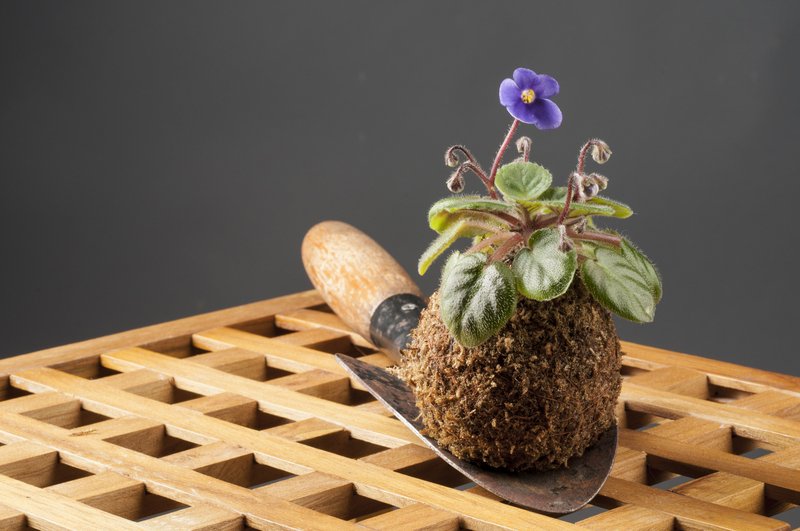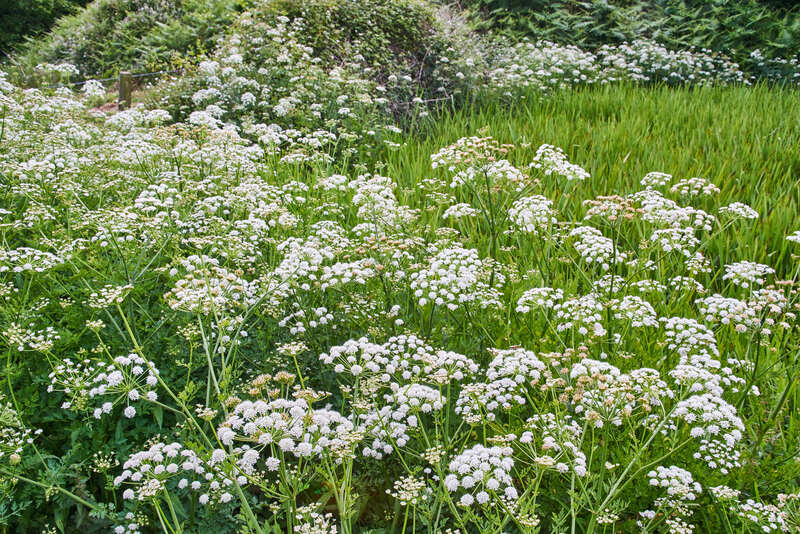Greening Your Thumb: Comprehensive Herb Gardening
Posted on 30/08/2025
Greening Your Thumb: Comprehensive Herb Gardening
Herb gardening is more than just a hobby; it's a journey to self-sufficiency, culinary delight, and sustainable living. Whether you're an urban dweller with a windowsill or enjoy a backyard with fertile soil, growing herbs enhances your space, your senses, and your health. This in-depth guide to herb gardening covers everything from planning your garden to maintaining a flourishing harvest. Let's dig in and discover how to green your thumb!

Why Start an Herb Garden?
- Fresh Flavors: Enjoy immediate access to vibrant, organic herbs for cooking, teas, and medicinal purposes.
- Cost Savings: Reduce grocery bills by harvesting your own coriander, basil, or mint.
- Sustainability: Minimize your carbon footprint by growing herbs at home, reducing packaging and waste.
- Therapeutic Benefits: Gardening relieves stress and connects you with nature--right at home.
With so many rewards, it's no wonder that herb gardens have become staples for both novice and experienced gardeners worldwide.
Planning Your Herb Garden
Choosing the Right Location
Most herbs thrive when they receive at least 6-8 hours of sunlight daily. Observe potential spots around your home:
- Outdoor Beds: Perfect for sprawling gardens with room for perennial and annual herbs.
- Container Gardens: Ideal for balconies, patios, or small urban spaces. Use pots that drain well.
- Windowsills: A kitchen window with ample sunlight becomes a handy, aromatic herb patch.
Container vs. In-Ground Herb Gardens
In-ground herb gardens offer space and soil variety for large harvests. In contrast, containers are flexible, mobile, and manageable--especially for beginners or apartment dwellers.
- Container Benefits: Minimize weed problems, control soil quality, and move plants as seasons change.
- In-ground Benefits: Greater variety, less frequent watering, and easier expansion for prolific herb gardeners.
Soil Preparation and Amendments
The foundation of a robust herb garden is rich, well-drained soil. Most herbs prefer soil pH between 6.0 and 7.5. Here's how to prepare:
- Test your soil: Use a soil test kit to check pH and nutrient levels.
- Enrich with organic matter: Add compost or aged manure to improve structure and fertility.
- Ensure drainage: Amend clay soils with sand and compost to avoid soggy roots.
Choosing the Best Herbs for Your Garden
Top Culinary Herbs for Beginners
Start with easy-to-grow, versatile kitchen staples:
- Basil: Perfect for Italian dishes, salads, and pestos.
- Mint: Ideal for teas, desserts, and summer drinks.
- Parsley: Rich in vitamins and a great garnish.
- Cilantro: A must-have for salsas and curries.
- Chives: Mild onion flavor works in eggs and potatoes.
- Rosemary: Excellent for roasts and breads.
- Thyme: Aromatic and essential for soups and meats.
Medicinal and Tea Herbs
For those interested in herbal remedies or soothing teas, consider:
- Lemon Balm: Calming, citrus-scented leaves for teas.
- Chamomile: Delicate flowers ideal for sleep-aiding infusions.
- Lavender: Promotes relaxation; use flower buds in teas or sachets.
- Echinacea: Known for its immune-boosting properties.
Perennial vs. Annual Herbs
- Perennials: Come back year after year--think chives, mint, oregano, and rosemary.
- Annuals: Complete their life cycle in a single season--such as basil, cilantro, and dill.
Planting and Care: Step-by-Step Success
Starting from Seeds vs. Transplants
Should you sow seeds or buy starter plants?
- Seeds: Economical and offer a wide variety, but may require patience and proper timing.
- Transplants: Faster harvests and ideal for late starters. You'll see results quickly with mature seedlings from local nurseries.
How to Plant Herbs
Follow these steps for herb gardening success:
- Select healthy seeds or seedlings.
- Plant in prepared beds, pots, or raised beds--ensuring space for air circulation.
- Water lightly: Keep soil moist, not soggy. Herbs dislike "wet feet."
- Mulch around plants to retain moisture and suppress weeds.
- Label herbs for easy identification as they grow.
Watering, Feeding, and Mulching
- Watering: Most herbs need moderate water--avoid overwatering. Allow the top inch of soil to dry before rewatering.
- Feeding: Fertilize sparingly. Too much nitrogen leads to more leaves but diluted flavors.
- Mulching: Use straw or wood chips to maintain moisture and temperature.
Managing Pests and Diseases Naturally
Identifying Common Problems
Healthy herb gardens rarely suffer major pest issues. Occasionally, you may encounter:
- Aphids: Tiny, sap-sucking insects. Blast off with water or use neem oil.
- Slugs and Snails: Remove by hand or set beer traps.
- Mildew: Increase spacing for airflow, and water only in the morning.
- Root Rot: Prevent by ensuring your soil drains well.
Natural Pest Solutions
Control garden ailments without synthetic chemicals:
- Companion planting: Marigolds, garlic, and nasturtiums deter harmful insects naturally.
- Homemade sprays: A mix of mild soap and water helps control soft-bodied pests.
- Encourage predators: Birds and ladybugs consume garden pests--make your garden inviting!
Harvesting and Storing Your Herbs
How and When to Harvest
Harvest herbs regularly to promote new growth and increased yields. General tips:
- Snip leaves or stems with sharp scissors or pruners, preferably in the morning after dew has evaporated.
- Harvest just before or at flowering for the best flavor and aroma.
- Never remove more than a third of the plant at one time.
Preserving Your Herb Harvest
The season's surplus can be enjoyed year-round through:
- Drying: Hang small bunches upside down in a dry, airy room.
- Freezing: Chop herbs and freeze in ice cube trays with a bit of water or oil.
- Infusing: Make herb oils, vinegars, or butters for culinary use.
Proper storage preserves both the aroma and potency of your herb harvest.
Creative Uses for Home-Grown Herbs
Culinary Inspiration
Fresh-picked herbs can transform meals, beverages, and snacks. Add torn basil leaves to pizza, muddle mint in mojitos, or sprinkle chopped chives over soup.
Herbal Teas & Remedies
Create nourishing drinks and remedies with your collection:
- Brew soothing chamomile or lemon balm tea before bedtime.
- Infuse honey with thyme for sore throats.
- Blend rosemary and olive oil for a fragrant hair rinse.
Home Fragrance and Decor
Fill the air with the natural scent of your garden:
- Dried lavender sachets keep closets fresh.
- Bouquets of sage or rosemary add rustic decor to kitchens.
- Herb wreaths create fragrant holiday centerpieces.
Expert Tips for Thriving Herb Gardens
- Rotate containers every few weeks so all plants receive even sunlight.
- Pinch and prune herbs early and often to encourage bushier growth.
- Group herbs with similar water needs to simplify care.
- Keep a planting journal: Note what thrives in your garden and repeat your successes next season.
- Experiment! Try less common herbs like borage, lovage, or sorrel for unique flavors and pollinator support.
Common Mistakes to Avoid
- Overwatering: Most herbs prefer drier conditions--let soil dry slightly between waterings.
- Poor drainage: Use potting mix, not garden soil, in containers to prevent root rot.
- Crowding: Allow space for herbs to grow and airflow to prevent disease.
- Neglecting harvest: Herbs become woody or lose flavor if left untrimmed.
- Ignoring individual needs: Tailor care for each herb--basil loves warmth, cilantro bolts in heat, rosemary likes it dry.
Seasonal Herb Gardening: Year-Round Success
Spring and Summer
Sow seeds and set out seedlings in early spring after the threat of frost. Water more frequently as temperatures rise and prune regularly for abundant harvest.
Fall
Harvest and preserve as the weather cools. Bring tender herbs indoors or start indoor herb pots for winter use.
Winter
Herbs like rosemary and thyme withstand chilly temps with mulch protection. Grow basil, parsley, and chives indoors on sunny sills.

Frequently Asked Questions About Herb Gardening
Do herbs need fertilizer?
Use a balanced, organic fertilizer sparingly--too much can reduce the flavor intensity. Most herbs thrive in less fertile soils.
What are the best herbs for shady areas?
Mint, parsley, chives, and lemon balm tolerate partial shade but will still need some sunlight for vigorous growth.
How do I prevent herbs from bolting (going to seed)?
Harvest regularly and keep plants well-watered, especially during hot weather. Bolting signals the end of leaf production for many herbs, particularly cilantro and basil.
Can I propagate herbs from cuttings?
Absolutely! Herbs like mint, rosemary, and sage root easily in water or moist potting mix, making herb propagation a rewarding way to expand your garden.
Conclusion: Growing Green, Living Well
Herb gardening is a satisfying blend of art, science, and culinary adventure. By following these comprehensive steps--selection, planting, care, and creative use--you'll soon enjoy a steady supply of flavorful, fragrant, and health-boosting herbs. Start small but dream big, and you'll discover just how easy it is to green your thumb with a thriving herb garden. So pick up some seeds, find a sunny spot, and let the greening begin!
Latest Posts
Neglected No More: First Steps to a Vibrant Garden Makeover
Sow Sustainability: Gardens as Climate Protectors
Inexpensive Paths to a Lush, Low-Maintenance Garden



